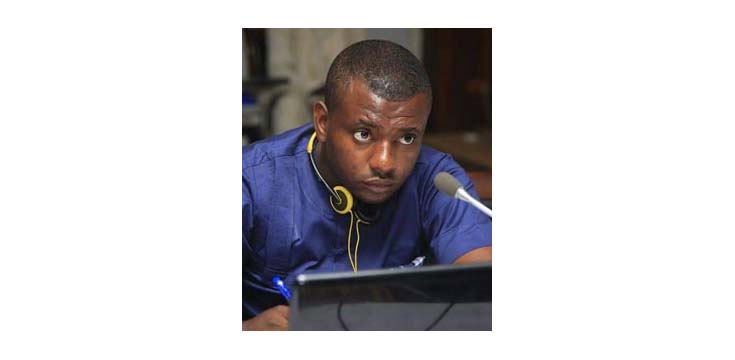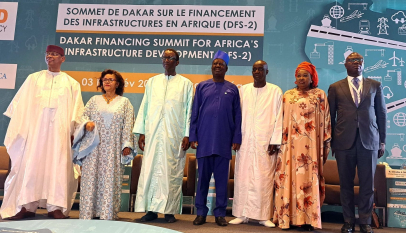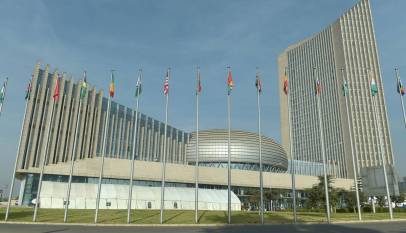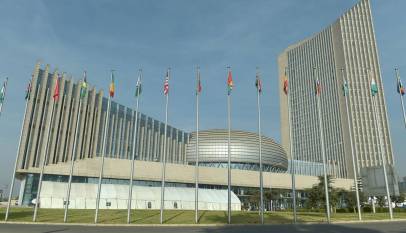INTERVIEW: “Young people powerful agents for resolving conflicts in Africa”
Ekene Ikwelle is the chairperson of the Pan African Youth Network on the Culture of Peace (PAYNCoP); a youth-led network of organizations working for the integration of the culture of peace among youths, women and marginalized groups in Africa

How the Pan African Youth Network on the Culture of Peace (PAYNCoP) did came about?
It all began with the Pan-African Forum themed: “Sources and resources for a culture of peace” which was held in Luanda, Angola from 26 to 28 March 2013 and which was jointly organized by UNESCO, the African Union (AU) and the Government of Angola and which led to the Luanda Declaration.
The forum discussed the concept of the culture of peace and why it had become imperative that a youth coalition was established to push for the realization of culture of peace in Africa. Part of the recommendations were the Luanda Action Plan which provided for the formation of 3 networks; one of the networks was to focus on women working around peace while the second would be a network of foundations and institutions working around the culture of peace.
The third was meant to be a youth network on the culture of peace whose members will be youth organisations from across Africa. As a way forward, in December 2014, UNESCO and AU, in partnership with the Government of Gabon organized another Pan African Forum themed: “African youth and the challenge of promoting a culture of peace” in Libreville and the outcome of that forum was the creation of the Pan African Youth Network on the Culture of Peace (PAYNCoP).
The idea behind the Network was to serve as a rallying point for youth organisations working around the culture of peace in Africa and diaspora so as to create synergy in their operations. The plan was for the member organisations to collectively develop an action plan for joint action activities aimed at entrenching the culture of peace in Africa.
How critically-important is the role of youths in attaining the culture of peace in Africa particularly looking at their integral role in violent conflicts be it in the case of Boko Haram in West Africa or Al Shabab in East Africa?
The concept of the culture of peace is built around making people embrace the culture of peace as a way of life; I know it is believed that young people are the proponents of violence across Africa and the globe – I want to believe it is not entirely true and also not entirely false.
What I think is very clear is the fact that when governments failed to provide good governance and when they do not inspire hope, ensure youth inclusion and when there are no deliberate policies to develop the capacity of youths by empowering and engaging them, they are bound to feel left out and frustrated. And when a young person feel frustrated they will naturally look out for ways to vent out their anger.
So, because of the failure of governments across Africa to integrate youths in their sustainable development agendas, the youths are creating their own spaces through violence. When youths feel frustrated what they look out for is groups that show them a sense of brotherhood; that will make them believe they are also worth something. For this, young people have become vulnerable to these violent groups that are built around a sense of brotherhood.
However, there are a number of outstanding youths implementing a lot of great initiatives that are bringing about the culture of peace in different countries across Africa, such as Uganda, Kenya, Gambia and Nigeria. What we therefore need to do is not just empower young people but also engage them by involving them in the existing peace and security architecture such as the Panel of the Wise (PoW), the ECOWAS Wide Area Network (ECOWAN) as well as the AU’s peace and security architecture.
What we as youths still require is the opportunity to be part of these systems, in accordance with the UN’s Resolution 2250 which sees young people as powerful agents for resolving and preventing conflict throughout the world and hence the need for young people to have legal recognition in the system so as to be able to transform their communities.
The campaigns for democracy we are currently seeing in Central African Republic (CAR) and the Democratic Republic of Congo (DRC) are all being spearheaded by young people and they are very responsible and peaceful about the campaigns but when you don’t have governments that listen to youth it is difficult to keep them away from becoming radicalized. Nonetheless, there are regions of the world where youth groups are recognized, civil rights movements are appreciated, and young people are seen as partners and not adversaries.
How important is preventing and countering violent extremism to you as a network?
We appreciate and understand the importance of preventing violent extremism and it is fundamental to all our actions and programs across Africa. If you look at the concept of early warning system, it is also geared towards preventing violent extremism and ensuring that young people at the level of communities are informed about the possible escalation of conflicts.
Therefore, at the core of all our activities as a network are three important components which are global peace and security; democracy and strong institutions as well as preventing violent extremism. So, preventing violent extremism is a very important to us as a network and we try to integrate it in all our projects.














